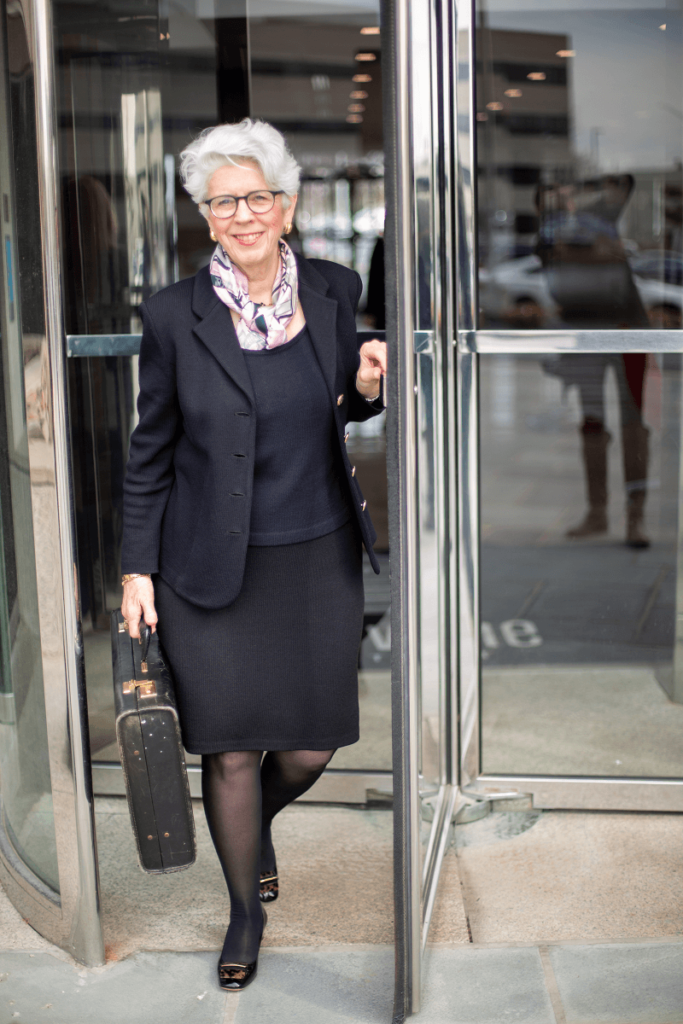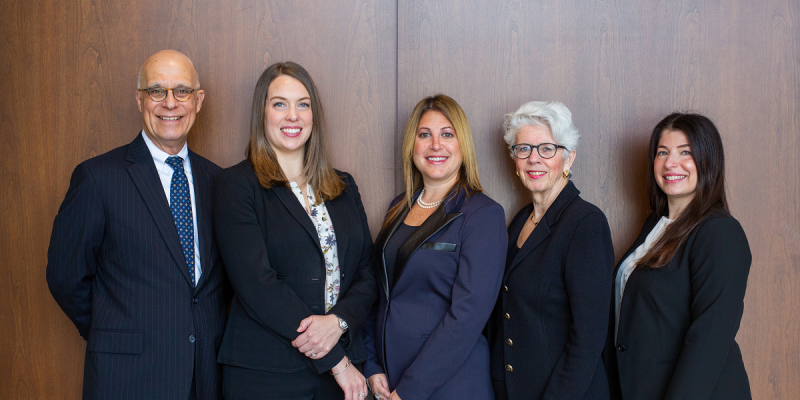Divorce Seniors
Suddenly Single Seniors
There’s been a steady increase in the frequency of divorce among senior citizens. A desire for a more meaningful life may be behind it.
By Kathleen B. Vetrano, Esquire
King of Prussia, PA and the Philadelphia Main Line

As seniors approach their golden years, many people are choosing divorce, once considered unthinkable at this stage of the game. The explanation for the increase in the rate of divorce for seniors may be no more complicated than a desire for a happier, more meaningful life.
People are living longer. At the turn of the 19th century, life expectancy was in the mid-40s. At the turn of this century, life expectancy is in the late 70s. In addition to living longer, people are healthier. With the expectation of longer, healthier lives, many seniors are making life choices that are different from earlier generations.
These factors have had a significant effect on other stages of life. For example, when the children are grown and leave the home, the home is emptier, and life becomes much less active. And at retirement time, life changes even more. Such major changes, and the deceleration that usually comes with them, often lead a senior to examine the life one has led — and that’s followed by thoughts of what will come next.
When life was shorter, there was not much future to think about. But now that there are many years to be lived, the issue becomes how best to live them. And if the responsibilities of child-rearing and career are past, the question, more specifically, is “What do I want to do?” rather than “What do I have to do?” For a married person, such examination includes, of course, the state of the marriage. In marriages in which there are children, even adult children, most of the necessary decisions are based — as they should be — on the best interests of the children and family; the interests of the spouses are generally secondary. But when the marriage never produced children or they are grown and no longer present, the focus is more on the needs of the spouses. The result is that issues take on a different character. An example is how to deal with money during the “golden years.”
Living longer and healthier lives allows for the start of a new career in some cases. This may be especially attractive to one who has remained in a job more for the sake of security than because the work is enjoyable. Others may want to finish an incomplete education, or go to school simply for the pleasure of learning.
All of these possibilities and opportunities, while positive, can turn negative if the spouses’ attitudes toward them are quite different. It is, of course, when such attitudes are irreconcilable that divorce becomes a consideration. Yet, while divorce is an option, it should not be viewed as a panacea. Indeed, for the spouse not looking for “happiness” or “meaning” in life, divorce for seniors can be devastating. In short, it is important to know the after-effects.
A divorce’s impact on children, even if they are adults, can be polarizing and divisive. New careers after divorce are possible, but, of course, harder the later in life one commences them. Friends before divorce can find it difficult to maintain a friendship with one or both parties after divorce and loss of the friendship means loss of the support and enrichment that friends provide.
Family lawyers have noticed an increase in the divorce rate for those in long-term marriages. Although the states keep statistics on the number of divorces, it does not appear that any state is tracking the number of divorces of couples by age group.
The phenomenon of the increased divorce rate among seniors has been recognized by the Family Law Section of the American Bar Association (ABA). In the early 1990s, an elder law committee of family lawyers of the ABA was created to address legal issues peculiar to this phenomenon. For almost 10 years, the elder law committee of the Family Law Section of the ABA has produced programs for lawyers all over the country to make lawyers aware of the special legal issues that arise when seniors divorce.
When seniors divorce, there are many special legal considerations. Retirement benefits must be divided in a way to provide for both spouses. Although there may be a sentimental attachment to a family home, sometimes keeping the home and foregoing retirement benefits is a poor choice for a dependent spouse who may find it difficult to maintain the house. When there is a stream of alimony payments, there must be consideration of change in the amount of benefits when the payer spouse retires. There also needs to be an agreement on when a spouse can retire. When a dependent spouse is required to start receiving social security benefits at age 62, a significant reduction in benefits occurs. There are remarriage penalties built into the social security benefits. Also, Medicare benefits do not start until age 65. Sometimes there are retiree health benefits from a former employer that cannot be shared with a divorced spouse. Will there be a need for nursing home care and what is the effect of Medicaid benefits? If an estate plan has been created, the divorce will most likely alter it and other estate planning must be done.
Yet, if divorce must happen, the manner in which it is brought about has a lot to do with the quality of the parties’ lives after divorce. The divorcing spouses must understand, for example, that while the divorce eliminates the husband/wife relationship, those individuals remain the parents of their children. And so, a “good divorce” does not have to bean oxymoron.
Indeed, a process exists to foster a good divorce; it is called Collaborative Divorce™. The process of Collaborative Divorce™ is finding solutions to the many issues in a divorce — rather than treating the divorce as an adversarial proceeding. Collaborative Divorce ™ is particularly appealing to seniors who value the family unit and who both want to be able to participate together in family events after the divorce.
In a collaborative divorce each spouse has a divorce lawyer to look out for the spouse’s interests and advise the spouse accordingly. Each spouse also has a psychologist — sort of a “divorce coach” — to help the spouse understand and deal with the unavoidable psychological aspects of divorce. Also, independent financial advisors are utilized to resolve complicated economic issues, such as the value of assets.
Finally, to ensure the realization of its purpose, the collaborative divorce process does not allow resorting to the court. If agreement becomes impossible, arbitrators or mediators will be retained to break the impasse. The two hostile parties must also obtain lawyers other than those involved in the collaborative process if the whole thing falls through.
A collaborative divorce’s focus and concern is less with the divorce, which is predetermined, and much more on the divorce’s aftermath: the new lives of the parties.
Editor’s Note: Kathleen Vetrano, an MLT guest columnist, practices family law at Vetrano | Vetrano & Feinman LLC in King of Prussia. She is a fellow of the American Academy of Matrimonial Lawyers and has chaired the elder law committee of the ABA’s family law section since 1993. Ms. Vetrano is co-founder of the Collaborative Family Law Affiliates.

Need to Talk to Us?
Our experienced family lawyers take the time to fully understand the financial and emotional complexities that can be involved in separating two lives. We offer the patience and resources to effectively guide clients through a divorce, addressing all the challenges they may face in moving forward with their lives. To learn more about how we can help protect your rights and interests in a complex divorce, contact the Pennsylvania divorce attorneys at Vetrano | Vetrano & Feinman LLC.